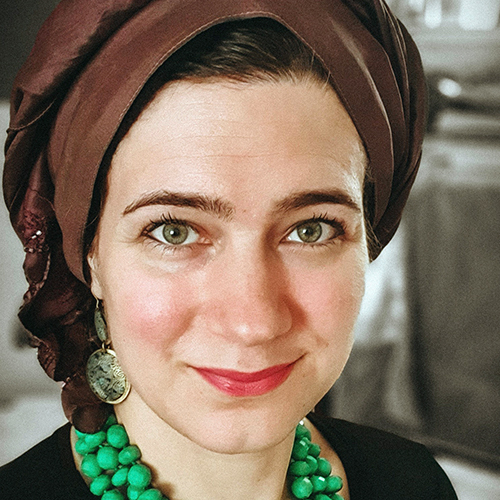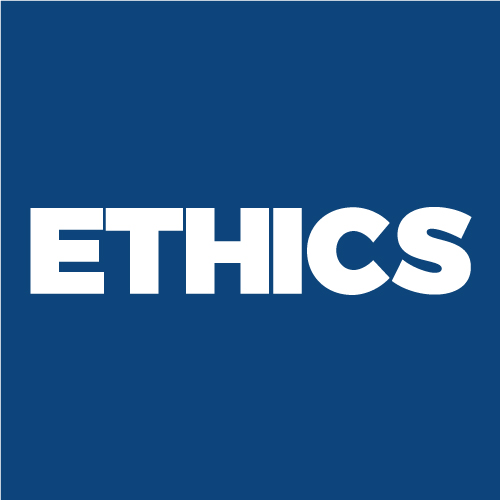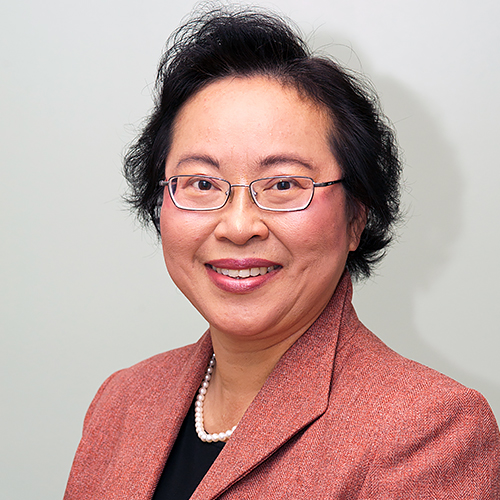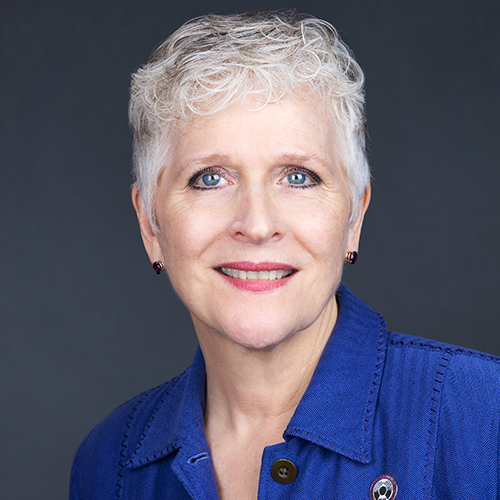 IBCLC Using Research Online Course(s) & Continuing Education
IBCLC Using Research Online Course(s) & Continuing Education
Access the latest clinical skills and research for IBCLC Using Research for IBCLC/Lactation Consultants professional training. These IBCLC Using Research online courses provide practice-changing skills and valuable perspectives from leading global experts. This IBCLC Using Research education has been accredited for a variety of CEUs / CERPs and can be accessed on-demand, at your own pace.

Demystifying research articles: Ten Tips for the Non-Researcher IBCLC

Glenda currently works at Duke University Hospital as an inpatient IBCLC. She has been with Duke since September 2017. Prior to working at Duke she was an Assistant Professor at the University of Louisville School of Nursing, primarily teaching the maternal newborn courses. She graduated with a BSN from the University of Louisville in 1990, a MSN from Old Dominion in 2004, and is currently a PhD candidate at the University of Louisville and will graduate May 2018. She is testing a new breastfeeding assessment instrument she created. She first became certified as an IBCLC in 1997 and took the certification exam for the 3rd time April 2017. She has worked maternal newborn, women’s health, and lactation during her 27 years as a RN. She has presented internationally (but the conference was in Louisville), nationally, and locally. She is a member of ICLA and USLCA.
Reading let alone critically analyzing a research article can be quite intimidating to a non-researcher lactation consultant. How many lactation consultants find a research only to read the abstract, introduction, and conclusion to skip over the parts of the article they do not understand? Lactation consultants must provide evidence-based, ethical care to mothers, their baby, and their family. Lactation consultants can be instrumental and part of a multi-disciplinary research team. This presentation will help demystify research articles by providing ten practical tips for the non-researcher IBCLC. Not only will the lactation consultant feel more confident about reading the research article but the presentation will offer a great review of research concepts that are included in the IBLCE exam blueprint and prepare exam candidates for the IBLCE exam.

View Details / Enroll

View Details / Enroll

Moving from Evidence to Practice: Knowledge Translation and Breastfeeding Support

Sonia Semenic is an Associate Professor at the Ingram School of Nursing, McGill University (Montreal, Quebec, Canada) and a Nurse Scientist at the McGill University Health Center. After many years of experience as an IBCLC and Clinical Nurse Specialist in maternal-child health, Sonia completed a PhD in Nursing and postdoctoral training in community health. Her research aims to better understand the process of knowledge translation (KT) in perinatal health, with a particular focus on the implementation of evidence-based practices to protect, promote and support breastfeeding. She currently co-leads the Knowledge Translation Platform for the Quebec Nursing Intervention Research Network, and teaches graduate courses on knowledge translation in nursing practice.
Topic: Moving from Evidence to Practice: Knowledge Translation and Breastfeeding Support - [View Abstract]
Despite irrefutable research evidence for the benefits of breastfeeding, less than 37% of infants worldwide meet WHO targets for optimal breastfeeding. Persistently low breastfeeding rates are due in part due to poor uptake of breastfeeding best-practice guidelines, such as the Baby-Friendly Hospital Initiative. The growing field of knowledge translation in healthcare reveals that it takes from 8-30 years for research findings to be adopted into clinical practice, and that up to 45% of patients don’t receive evidence-based healthcare. This presentation aims to help those providing lactation support to better understand the complexity of factors influencing the use of evidence in practice, as well as what can be done to facilitate the uptake of best practice guidelines to protect, promote and support breastfeeding. Whether or not care providers follow evidence-based practices is influenced by the nature of the evidence (e.g., perceived relevance of the evidence), characteristics of the care providers (e.g., motivations to change practice) as well as characteristics of the care environment (e.g., leadership support for change). Successful strategies for supporting practice change are tailored to local barriers and facilitators to evidence use, and can be informed by the growing number of theoretical models and frameworks for KT in healthcare.

View Details / Enroll
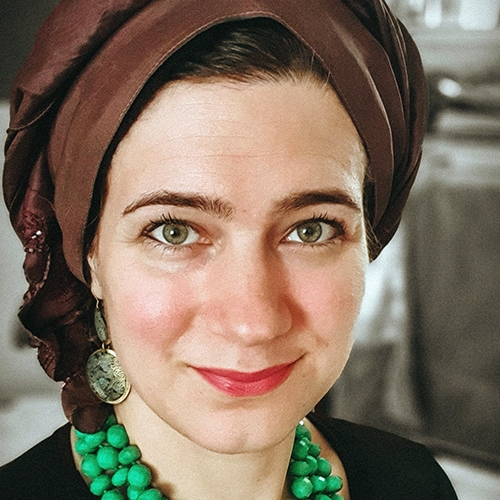
Research Ethics & Infant Feeding: How to Utilise the Four 'D's of a Brief Assessment

Zainab Yate is a Biomedical Ethicist, with a specialist interest in infant feeding. Zainab is Vice Chair and named qualitative lead on a paediatric flagged Research Ethics Committee Panel for the Health Research Authority (HRA) in the UK, reviewing research protocols for over a decade. Zainab's previous working background is in Public Health and Commissioning the National Health Service (NHS) in the UK. She had also been a volunteer breastfeeding peer supporter with the NHS for a number of years, is the owner-author of the resource site for mothers and healthcare practitioners on Breastfeeding / Nursing Aversion and Agitation and author of "When Breastfeeding Sucks".
Topic: Breastfeeding / Nursing Aversion and Agitation (BAA) in breastfeeding mothers - [View Abstract]
Topic: Navigating the Future: Bioethical Challenges in Anticipated Integration of AI in Lactation and Breastfeeding Services - [View Abstract]
Topic: Research Ethics & Infant Feeding: How to Utilise the Four 'D's of a Brief Assessment - [View Abstract]
Research ethics institutions protect the rights, safety, dignity, and well-being of research participants, and also have a duty to ensure ‘good’ research. Conducting poor research is unethical, and there are many studies in the field of breastfeeding and lactation that have been challenged when published, simply because their findings and results are, at best, incorrect. Proper definitions, project design and industry conflict of interest are important factors, and these can be critiqued and challenged at the ethical review stage.
Participants will learn how to use the method of the '4 Ds of a Brief Assessment' to scrutinise the research questions, definitions of words used, disclosures and even the research methodology to decide if a study will have both scientific and ethical merit in the field of breastfeeding and lactation. If you are a donor, an applicant, a manager or a researcher you need to be aware of the process of ethical review of research protocols, the possibility of specialist review, and also of how to sift through published studies that have questionable study designs, and the findings.
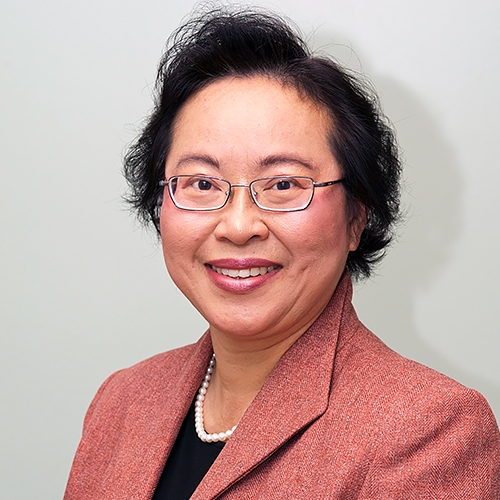
Research Review: What the Evidence Tells Us About Improving Breastfeeding Outcomes

Wilai Rojjanasrirat, PhD, RN, IBCLC, FILCA, FAAN is a Professor and Director of Research and Scholarship at Graceland University’s School of Nursing in Independence, Missouri. Her background is in midwifery and maternal and child health nursing.
She is an international board certified lactation consultant. She earned her Bachelor’s in Nursing and Midwifery from Thailand and Master’s and Doctorate and Post-Doctorate in Nursing from the University of Kansas. She teaches in graduate nursing program. Her research focuses on promoting and supporting breastfeeding, psychometric development, and educational outcome evaluation.
Using telehealth in providing lactation support, evaluation of the breastfeeding outcomes among late-preterm, near term, and term infants, and evaluation of the Business Case for Breastfeeding Program’s impact among employed breastfeeding mothers in Kansas are among some of the research projects.
Dr. Rojjanasrirat has multiple publications and recently contributed to a book chapter on Employment and Breastfeeding in Wambach & Spencer, Breastfeeding and Human Lactation, 6th edition in 2021. She served as a former president of the Pi Eta Chapter of the Nursing Honor Society, a board member of the KC Board of Directors of Kansas City, Kansas, and a former president of the Greater Kansas City Lactation Consultant Association for several years.
Topic: Understanding Lactation-Related Research - [View Abstract]
Despite the many benefits of breastfeeding to both mothers and infants, the majority of women are unable to reach the recommendations of the World Health Organization of exclusive breastfeeding for the first 6 months of life and continued breastfeeding for two years or longer. It's important for health care professionals to stay up to date with the latest research to always ensure that the care they're providing is in line with current best evidence.
This presentation will present the results of a research review on the effectiveness of interventions to improve breastfeeding outcomes. A database search including PubMed, Cochrane, and CINAH were conducted to identify systematic review and meta-analysis studies in English that focused on breastfeeding interventions that addressed breastfeeding outcomes in full-term healthy newborns from 2012 to 2022. Learn more about the which breastfeeding interventions are backed by strong evidence, quality issues in certain studies, and the implications for further research.
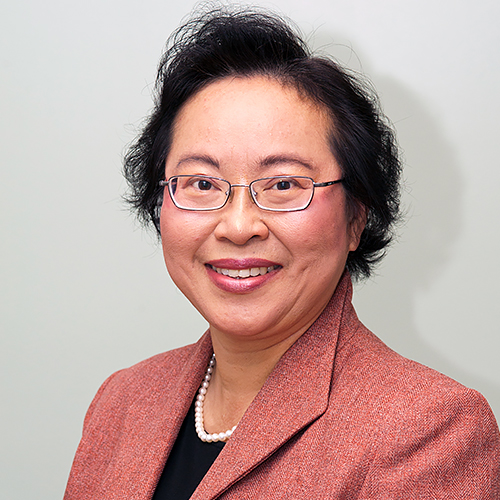
View Details / Enroll
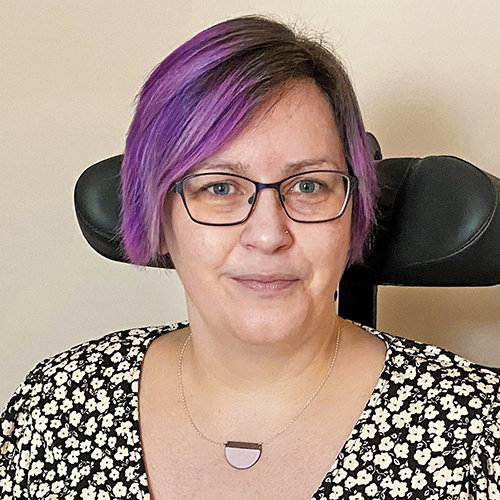
Reviewing the Research on Breastfeeding in Public: Challenges, Solutions and Impact

Aimee Grant is a Senior Lecturer and Wellcome Trust Career Development Fellow at Swansea University Centre for Lactation, Infant Feeding and Translation. She has researched marginalised pregnancy and early motherhood for the past decade, including those living in poverty, stigmatised locations and Disabled women. Aimee's current research is an 8 year longitudinal study using visual methods to understand Autistic experiences "from menstruation to menopause". She is the author of two Documentary Analysis texts (Routledge, 2019; Policy Press, 2022), and is currently writing The Autism Friendly Guide to Pregnancy (and the fourth trimester).
Many parents in Global North countries identify breastfeeding outside of the home as a particular challenge, and this can lead to stopping breastfeeding earlier than intended. However, there are often legal protections available. In order to better understand this complicated landscape, I will present a summary of the 71 research studies published on this between 2007-2021. Current barriers to mothers being able to breastfeed in public spaces will be described in relation to the legal system, structural inequality and intersectionality, knowledge leading to incorrect beliefs among the public, and a hostile social environment. Within this context it is completely rational for parents to feel a range of negative responses, which lead to them feeling unsafe to breastfeed. Building on this evidence, I present a range of ways in which you may be able to have a positive impact on the environment around the mothers you support.


Wilai Rojjanasrirat, PhD, RN, IBCLC, FILCA, FAAN is a Professor and Director of Research and Scholarship at Graceland University’s School of Nursing in Independence, Missouri. Her background is in midwifery and maternal and child health nursing.
She is an international board certified lactation consultant. She earned her Bachelor’s in Nursing and Midwifery from Thailand and Master’s and Doctorate and Post-Doctorate in Nursing from the University of Kansas. She teaches in graduate nursing program. Her research focuses on promoting and supporting breastfeeding, psychometric development, and educational outcome evaluation.
Using telehealth in providing lactation support, evaluation of the breastfeeding outcomes among late-preterm, near term, and term infants, and evaluation of the Business Case for Breastfeeding Program’s impact among employed breastfeeding mothers in Kansas are among some of the research projects.
Dr. Rojjanasrirat has multiple publications and recently contributed to a book chapter on Employment and Breastfeeding in Wambach & Spencer, Breastfeeding and Human Lactation, 6th edition in 2021. She served as a former president of the Pi Eta Chapter of the Nursing Honor Society, a board member of the KC Board of Directors of Kansas City, Kansas, and a former president of the Greater Kansas City Lactation Consultant Association for several years.
Topic: Understanding Lactation-Related Research - [View Abstract]
Evidence-based practice directly influences and drives day-to-day clinical practice in the current healthcare environments. Lactation consultants need to keep up to date with research evidence for best practice. Although the primary goal of lactation providers is to provide optimal lactation care to breastfeeding mothers, it is necessary to know how to apply appropriate evidence to use on a regular basis by understanding research process and how to read research articles. The purposes of this presentation are to present basic concepts related to conducting and understanding lactation related research including quantitative and qualitative research methods. In addition, the presentation also will cover the guides to reading scientific research articles. The participants do not require extensive or advanced medical or research methodological knowledge to attend this workshop. Some breastfeeding research papers including case studies, clinical trials, and qualitative research will be used as examples.

Using a Cool Head When You’re on the Hot Seat: Ethical and Legal Topics That Make Us Sweat, and How to Avoid Getting Burned

Liz Brooks is a private practice International Board Certified Lactation Consultant (IBCLC) and licensed lawyer, with expertise in criminal, administrative, non-profit, ethics, and lactation-related law. Liz offers in-home lactation consultations, and bedside care and teaching in two Baby-Friendly-designated hospitals.
She has been a leader in organizations for IBCLCs, breastfeeding promotion, and non-profit human milk banking. She authored the only textbook on legal and ethical issues for the IBCLC, and writes on health care ethics, equity, and conflict-of-interest in several books, blogs, and peer-reviewed journals.
She is a popular international conference speaker, offering practical tips with wit and wisdom for anyone who works with lactating and human milk-using families. Liz self-identifies as a cisgender hetero white woman with unearned privilege, and uses she/her/hers pronouns.
Topic: Using a Cool Head When You’re on the Hot Seat: Ethical and Legal Topics That Make Us Sweat, and How to Avoid Getting Burned - [View Abstract]
Topic: What’s Too “Friendly” for an IBCLC on Social Media? - [View Abstract]
Topic: Whiners and Deniers: Ethics and Diplomacy in Difficult Cases - [View Abstract]
We all understand, generally, that lactation support providers – from licensed primary healthcare providers (HCP) to volunteer peer counselors – owe a “duty of care” to the parents they work with, defined by laws and ethics codes. But many are concerned that they do not know what is really expected of them, in the moment of clinical care, when decisions about how to do things “the right way” must be made. This session will cover the basic of ethics and legal duty as a lactation support provider. Examples from the International Board Certified Lactation Consultant (IBCLC) literature will be used. A few topics that are the most common "hot spots" for practitioners (the ones that make us sweat) will be explored with a few slides, and a lot of free-flow Q&A with session attendees, as we ponder realistic tactics to protect ourselves as practitioners with cool heads and clinical excellence.
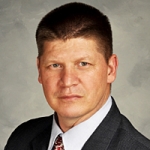

Tom Johnston is unique as a midwife and lactation consultant and the father of eight breastfed children. Recently retired after 27 years in the US Army, he is now an Assistant Professor of Nursing at Methodist University where he teaches, among other things, Maternal-Child Nursing and Nutrition. You may have heard him at a number of conferences at the national level, to include the Association of Woman’s Health and Neonatal Nurses (AWHONN), the International Lactation Consultant’s Association (ILCA), or perhaps at dozens of other conferences across the country. In his written work he routinely addresses fatherhood and the role of the father in the breastfeeding relationship and has authored a chapter on the role of the father in breastfeeding for “Breastfeeding in Combat Boots: A survival guide to breastfeeding in the military”.
Topic: Human Milk Synthesis: Just When You Thought You Knew - [View Abstract]
Topic: New Insights Into the Maternal Child Microbiome - [View Abstract]
Topic: Promoting Provider Self-Efficacy in Breastfeeding Support - [View Abstract]
Topic: Still Swimming Upstream: Breastfeeding in a Formula Feeding World - [View Abstract]
Topic: The Making of Human Milk: A Clinical Update - [View Abstract]
Topic: The Maternal-Child Microbiome or: The “Oro-boobular axis” - [View Abstract]
Topic: The Maternal-Child Microbiome or: The “Oro-boobular axis” - [View Abstract]
Topic: The Perinatal Microbiome - [View Abstract]
Topic: Using Evidence to Develop Clinical Lactation Skills - [View Abstract]
The field of Human Lactation is a new profession. Much of what we use comes from apprenticeship programs and hard learned lessons from a mother’s own personal experience. The lactation profession needs to investigate several of their practices and policies to discover what is evidence based and what is anecdotal evidence. This presentation explores the practices commonly employed in breastfeeding (growth monitoring, infant positioning, the use of assisted feeding devices, and counseling skills) to determine which are evidence based and which will require further study if they are to be used in clinical practice.





